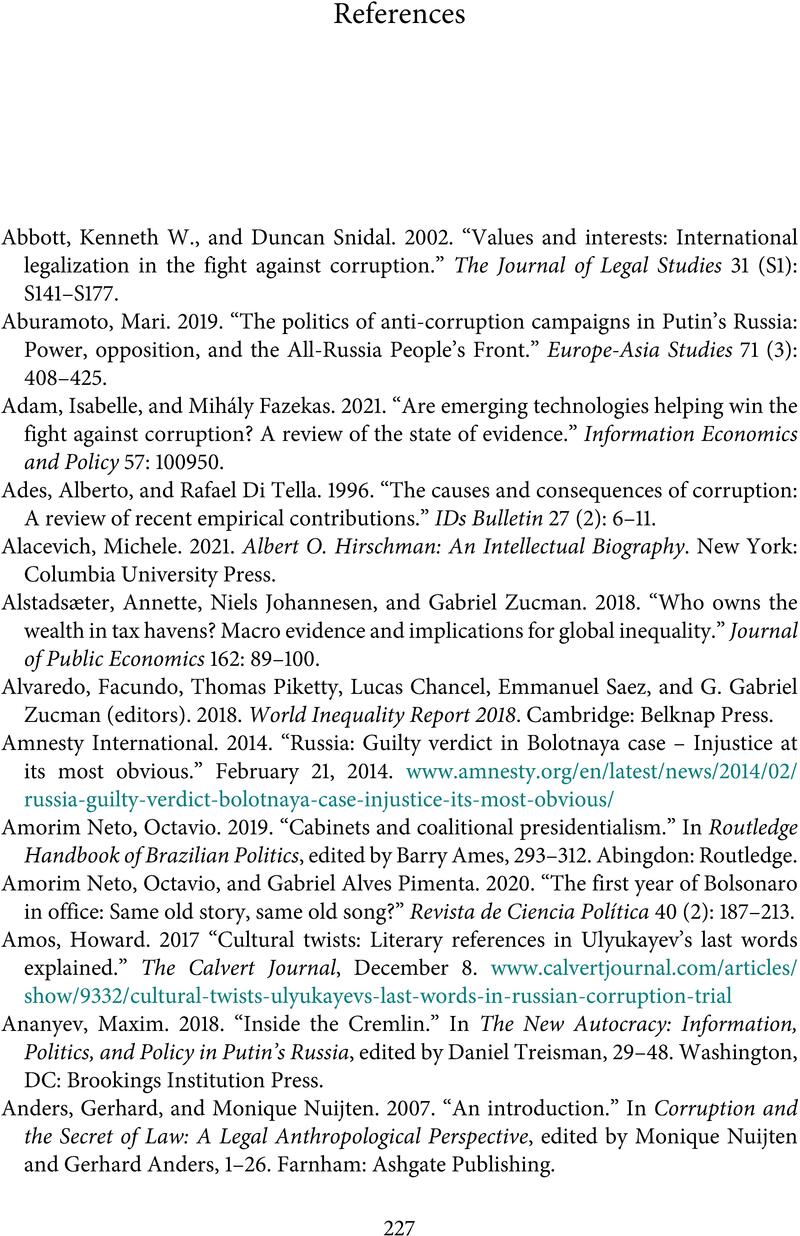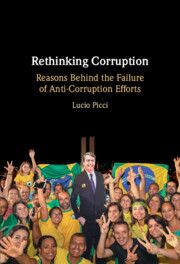References
Published online by Cambridge University Press: 27 February 2024
Summary

- Type
- Chapter
- Information
- Rethinking CorruptionReasons Behind the Failure of Anti-Corruption Efforts, pp. 227 - 252Publisher: Cambridge University PressPrint publication year: 2024

